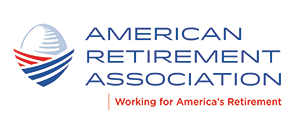Cross-Tested Plans Targeted [OPINION]
 (by Judy Miller & Nevin Adams) – As if small business owners didn’t have enough challenges, a recent Treasury Department regulation contains a provision that will make it harder for those firms to set up and keep their retirement plans.
(by Judy Miller & Nevin Adams) – As if small business owners didn’t have enough challenges, a recent Treasury Department regulation contains a provision that will make it harder for those firms to set up and keep their retirement plans.
The Target
The plan design affected is cross-tested plans, a defined contribution plan (generally a profit-sharing plan) that uses a certain testing method to show that the plan does not discriminate in favor of highly compensated employees (HCEs). Cross-testing is the term used to describe a technique where an allocation in a defined contribution plan for a year is converted to a projected benefit at retirement to establish that the plan does not discriminate against non-highly compensated employees.
A plan can only use cross-testing if minimum contribution requirements are met, a “minimum gateway allocation” that typically results in non-highly compensated employees receiving at least 5% of pay under a cross-tested defined contribution plan, even if cross-testing would on its own require a lesser contribution. This contribution is in addition to any matching contributions made under a plan. Additionally, if a company has a defined benefit plan in combination with a defined contribution plan, this minimum rate increases on a sliding scale up to 7.5% of pay. The typical defined contribution plan provides non-matching contributions of less than 4% of pay.
What’s the Problem?
The regulation, in proposed form, imposes a new “reasonable classification” requirement on cross-tested plans. To be considered “reasonable” under the proposed regulation, a classification has to be based on reasonable business criteria and has to include more than one person. Many small businesses have only one person who fills a role that would be considered a “reasonable classification” for a large company, but will not be “reasonable” for a small company. In other words, this new requirement has a disproportionate impact on retirement plans of smaller employers.
Not only would this proposal set aside an objective numerical nondiscrimination testing process that has been in place for more than two decades, it would result in a dramatic increase in costs for many small business retirement plan sponsors – in many cases 75% or more.
Take Action
We need your help in making it clear to the Treasury Department – and to your representatives on the Hill – that this small employer plan killing regulation needs to be removed from the proposed regulation before it undermines the retirement security of thousands of small business workers. We’ve developed resources at www.savemyplan.org that will make it easy for you to express your concerns. Take advantage of pre-drafted letters that you can use or edit as you see fit to get your message across to the appropriate members of Congress – and to petition the Treasury Department for its removal as well.
Don’t delay – small business retirement plans are under attack… again. Speak out at www.savemyplan.org.
Judy Miller is Director of Retirement Policy at the American Retirement Association. Nevin Adams is the American Retirement Association’s Chief of Marketing & Communications.
Opinions expressed are those of the authors and the American Retirement Association, and do not necessarily reflect the views of 401kTV which does not engage in lobbying or advocacy.


